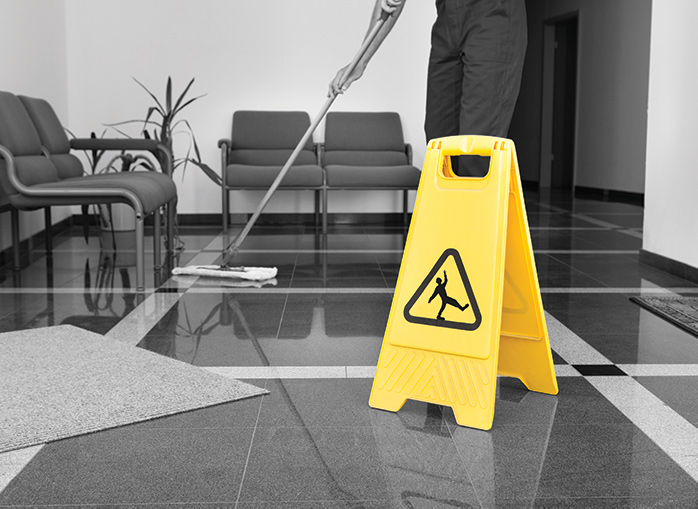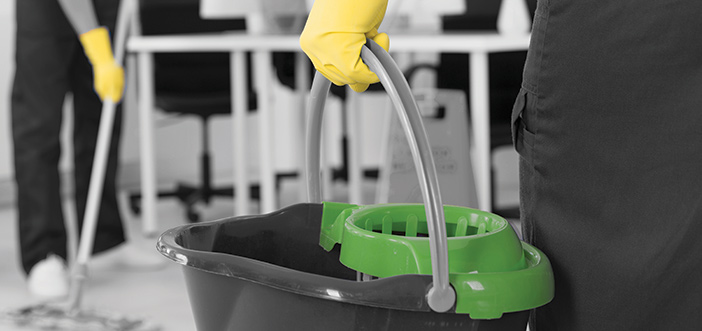How Are Customers And Service Sectors Adapting To A Post Covid-19, Brexit World And War In Ukraine?
 By Nina Wyers – Marketing & Brand Director at The Floorbrite Group.
By Nina Wyers – Marketing & Brand Director at The Floorbrite Group.
A Perfect Storm For Recession
The bank of England has raised interest rates in a bid to curb soaring prices and warned the UK will fall into a recession as it expects the economy to shrink in the final months of this year.
As we know, a number of issues have contributed. Lockdown measures introduced to slow the spread of Covid-19, changed patterns of consumer spending around the world, which in turn affected production and businesses. This, combined with Brexit which resulted in a 25% fall in imports from the EU, created by a large increase in barriers to trade, meant Brexit pushed up the price of imports from the EU, also having a knock-on effect for consumers and businesses.
The final nail in the coffin, creating a perfect storm for recession is the war in Ukraine, where energy prices have been weaponised and major food exports have been cut. Some businesses have projected a 500% increase in energy costs and have not benefitted from the government’s energy price cap, only a six-month scheme to offer equivalent support, but is that enough? The rising costs to consumers and businesses alike have resulted in a tightening of belts across the board.
Where Have All The People Gone?

According to the Economic Statistics Centre of Excellence, as many as 1.3 million overseas nationals left the UK between July – September 2019 to July – September 2020. Partly due to Brexit and partly due to the Covid Pandemic. Many of the migrants, especially from Europe, are disproportionately likely to be employed in the hospitality and service sectors and if they had not already left the UK due to the Brexit exodus, they left due to the likelihood of being furloughed or losing their jobs. Many foreign students employed in part time roles in the service sectors also decided not to come to the UK or return here when the universities moved wholly or largely to online teaching.
The migrant exodus in conjunction with the UK’s “Great Resignation”, the name given to the trend of people choosing to quit or change their jobs, largely attributed to the work or life changes caused by the Covid-19 pandemic has exacerbated staff shortages throughout many sectors too.
How Is The Market Reacting?

Our experiences with customers at the moment show that they, like many of us in the service sector, are continuing to struggle with recruitment challenges. Their decisions are very much cost driven too, and during the last recession, services such as cleaning were the first to be reduced. However, high standards, particularly in the area of cleaning, remain a high priority following the pandemic, as businesses continue to understand the importance of good sanitisation, hygiene, cleanliness standards and infection control, whilst valuing the service their cleaning staff provided during the peak of Covid-19. The conflict though between maintaining high standards and cost, creates a difficult dilemma, so what trends are we seeing?
What Are The Trends?

After speaking with our HR team and recruitment partners, there are green shoots that indicate greater numbers are returning to the labour market, however, the priorities of those job seekers, have evolved. With the rise in fuel costs there is a reluctance to travel, especially for part time roles, when the financial gain is hardly worth the investment in a tank of fuel. Many seekers also enjoyed their time spent with families during the pandemic and would simply prefer a job closer to home without long public transport journeys and the daily ticket prices involved.
The cleaning industry has also seen a shift over more recent years to many more full time professional, janitorial and housekeeping roles due to both customers and job seekers seeing the benefits. Additionally, the government’s plans around Universal credit rules are changing. Currently universal credit claimants working up to 12 hours a week on the national living wage are at risk of having their benefits reduced if they do not take steps to increase their earnings and meet regularly with a work coach. This is now set to increase to 15 hours in January 2023, therefore encouraging a focus on getting people back into work and maximising the hours people take on to help grow the economy and raise living standards.
Although unemployment is at its lowest rate for nearly 50 years, with the high number of vacancies that still exist and inactivity in the labour market, compounded by a lack of people, it makes perfect sense to consolidate multiple part time roles into a smaller number of full timers. With this in mind, many contractors are consulting with customers and re-structuring the way their services are delivered, potentially finding improved methods, specifications and cost savings in the process, benefitting both parties.
In respect of cost savings through innovation. The latest technologies in the facilities industry are also achieving helpful cost efficiencies. Whether they be from innovative or eco cleaning chemical ranges, improved productivity rates from the newest machinery, robotic equipment, savings from water management systems or smart building technology using sensors to monitor traffic in areas requiring housekeeping checks. There are many ways to ensure cost savings can be achieved for customers during this difficult time without sacrificing standards.
 The Floorbrite Group is a 2nd generation family business providing daily cleaning, industrial/specialist cleaning, window cleaning, washroom, hygiene and consumable supplies, waste and environmental management, pest control, plants and grounds maintenance, security and high-level building access solutions.
The Floorbrite Group is a 2nd generation family business providing daily cleaning, industrial/specialist cleaning, window cleaning, washroom, hygiene and consumable supplies, waste and environmental management, pest control, plants and grounds maintenance, security and high-level building access solutions.
With 50 years industry experience, Floorbrite has grown to become one of the leading soft service providers in the UK FM sector.
For more information please visit: www.floorbrite.co.uk
Click the article to enlarge it.



























































